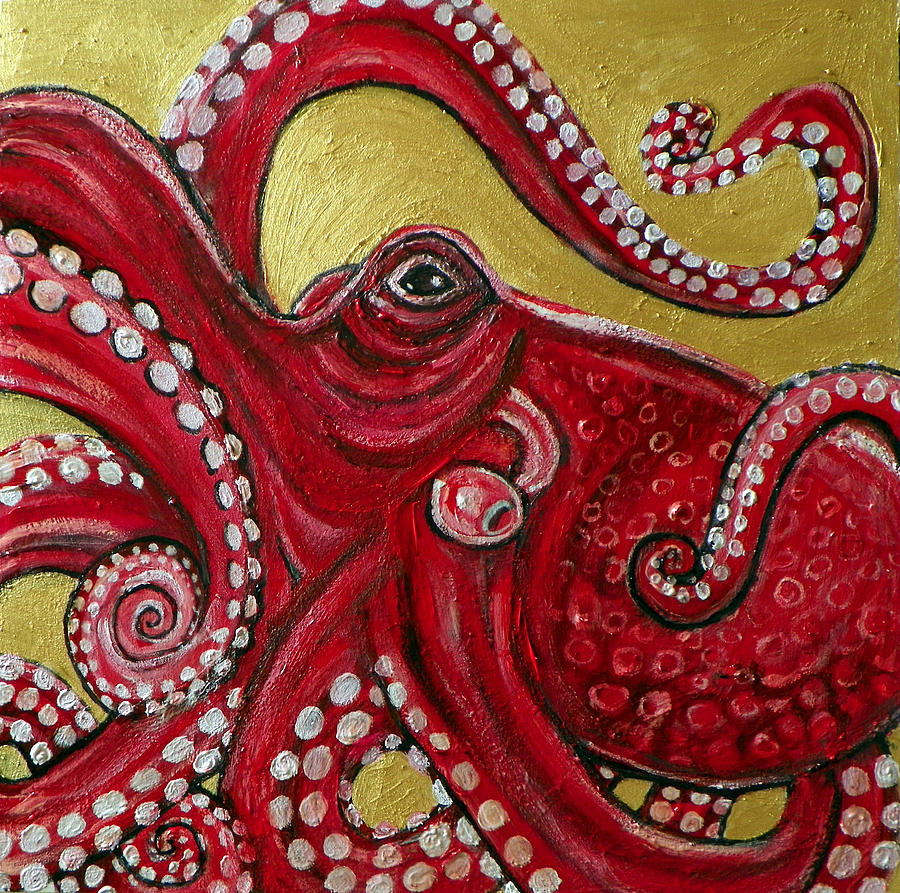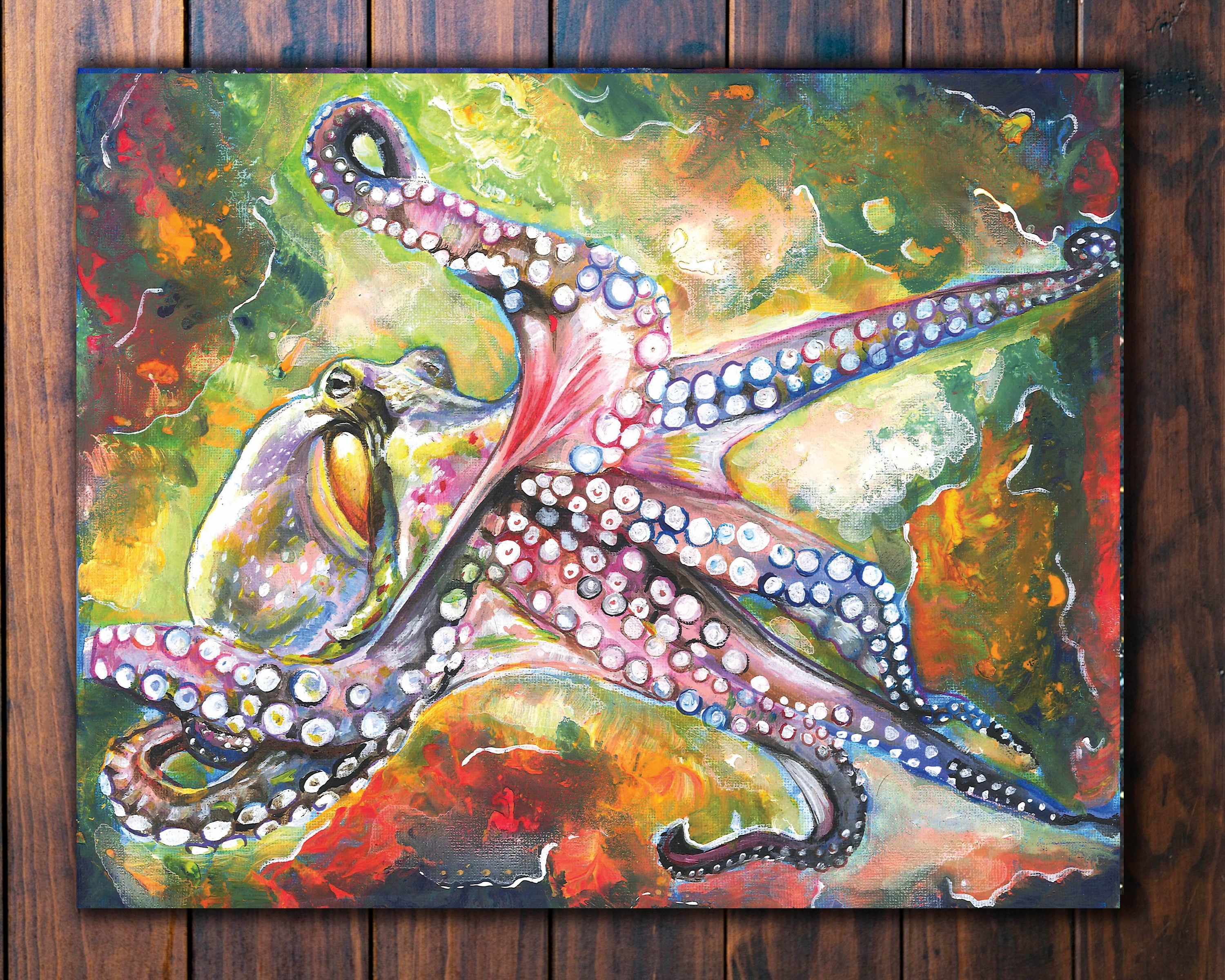
The Fascinating World of Octopus Art
Art comes in many forms, and one of the most intriguing and unique forms is octopus painting. These intelligent creatures have captivated humans for centuries with their mesmerizing movements and vibrant colors. In recent years, some artists have harnessed the creativity of octopuses to create stunning masterpieces that showcase their natural abilities. Let's dive into the fascinating world of octopus painting and explore the beauty it unveils.

The Octopus's Remarkable Artistic Abilities
Octopuses possess remarkable artistic abilities that set them apart from other marine creatures. Their dexterous tentacles allow them to manipulate objects with great precision, making them ideal candidates for painting. By attaching a brush or pencil to their tentacles, octopuses can create beautiful and intricate strokes on canvas or paper.

The Process of Octopus Painting
The process of octopus painting is a sight to behold. Artists provide octopuses with various colors of non-toxic paint and present them with a canvas or paper. The octopuses then dip their tentacles into the paint and start creating their artwork. Their movements are fluid and graceful, resulting in unique patterns and designs.

The Uniqueness of Octopus Art
Octopus art is truly unique and offers a different perspective on creativity. The organic and unpredictable nature of the octopuses' movements creates one-of-a-kind artworks that cannot be replicated by human hands. Each piece is a genuine expression of the octopus's personality and artistic vision.

The Impact of Octopus Painting on the Art World
Octopus painting has made a significant impact on the art world, captivating both art enthusiasts and scientists alike. These extraordinary artworks have been displayed in galleries and exhibitions worldwide, drawing attention to the incredible talents of these marine creatures. Octopus art has also sparked discussions about the nature of creativity and the boundaries between humans and animals.

Conservation and Ethical Considerations
While octopus painting is undoubtedly fascinating, it is important to address the ethical considerations surrounding this practice. It is crucial for artists and organizations to ensure the well-being and safety of the octopuses involved in the painting process. Responsible artists use non-toxic paints, provide adequate stimulation, and prioritize the comfort of their octopus collaborators.

The Future of Octopus Painting
The future of octopus painting holds great potential. As our understanding of octopuses' intelligence and abilities expands, artists and scientists may find new ways to collaborate with these incredible creatures. Octopus painting could continue to evolve as a form of artistic expression and contribute to our appreciation of the natural world.
